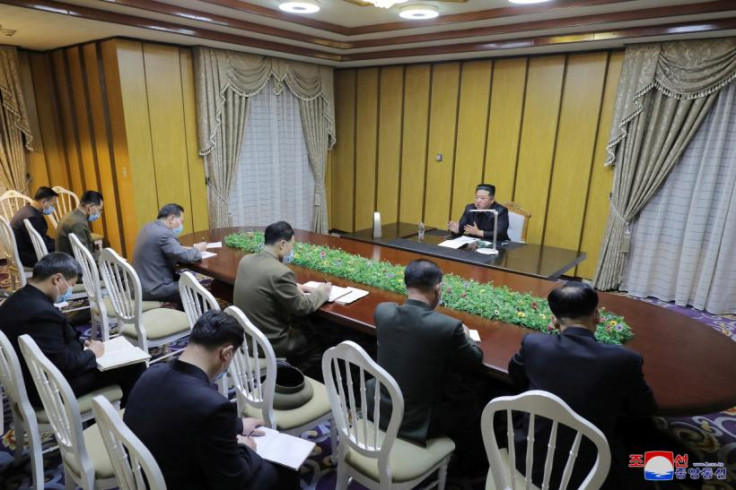N.Korea reports first COVID-19 death after 350,000 sickened with fever
At least six people who showed fever symptoms died, with one of those case confirmed to have contracted the Omicron variant of the virus
At least one person confirmed to have COVID-19 has died in North Korea and hundreds of thousands have shown fever symptoms, state media said on Friday, offering hints at the potentially dire scale of country's first confirmed outbreak of the pandemic.
About 187,800 people are being treated in isolation after a fever of unidentified origin has "explosively spread nationwide" since late April, the official KCNA news agency reported.
Roughly 350,000 people have shown signs of that fever, including 18,000 who newly reported such symptoms on Thursday, KCNA said. About 162,200 have been treated, but it did not specify how many had tested positive for COVID-19.
At least six people who showed fever symptoms died, with one of those case confirmed to have contracted the Omicron variant of the virus, KCNA said.
North Korean leader Kim Jong Un visited the anti-virus command centre on Thursday to check the situation and responses after declaring a "gravest state of emergency" and ordering a national lockdown on Thursday.
North Korea has said the outbreak began in the capital of Pyongyang in April. State media did not elaborate on the cause of the outbreak, but the city hosted several massive public events on April 15 and 25, including a military parade and large gatherings where most people did not wear masks.
Kim "criticised that the simultaneous spread of fever with the capital area as a centre shows that there is a vulnerable point in the epidemic prevention system we have already established," KCNA said.
Kim said actively isolating and treating people with fevers a top priority, while calling for scientific treatment methods and tactics "at a lightning tempo" and bolstering measures to supply medication.
In another dispatch, KCNA said health authorities were trying to organise testing and treatment systems and bolster disinfection work.
The rapid spread of the virus highlights the potential for a major crisis in a country that lacks medical resources, has refused international help with vaccinations and has kept its borders shut.
Analysts said the outbreak could threaten to deepen the isolated country's already tough food situation this year, as the lockdown would hamper its "all-out fight" against drought and the mobilisation of labour.
North Korea had declined vaccine supplies from the COVAX global sharing programme and China, possibly leaving the vast majority of people in a relatively young society at higher risk of infection.
Kwon Young-se, South Korea's new nominee to be the unification minister, responsible for inter-Korean ties, said at his confirmation hearing on Thursday that he was willing to push for humanitarian assistance for the North, including COVID treatment, syringes and other medical supplies.
A U.S. State Department spokesperson said it had no plans to send vaccines to North Korea but supported international efforts to provide aid to vulnerable people there, urging Pyongyang to facilitate that work.
© Copyright Thomson Reuters 2022. All rights reserved.

Copyright Thomson Reuters. All rights reserved.





















